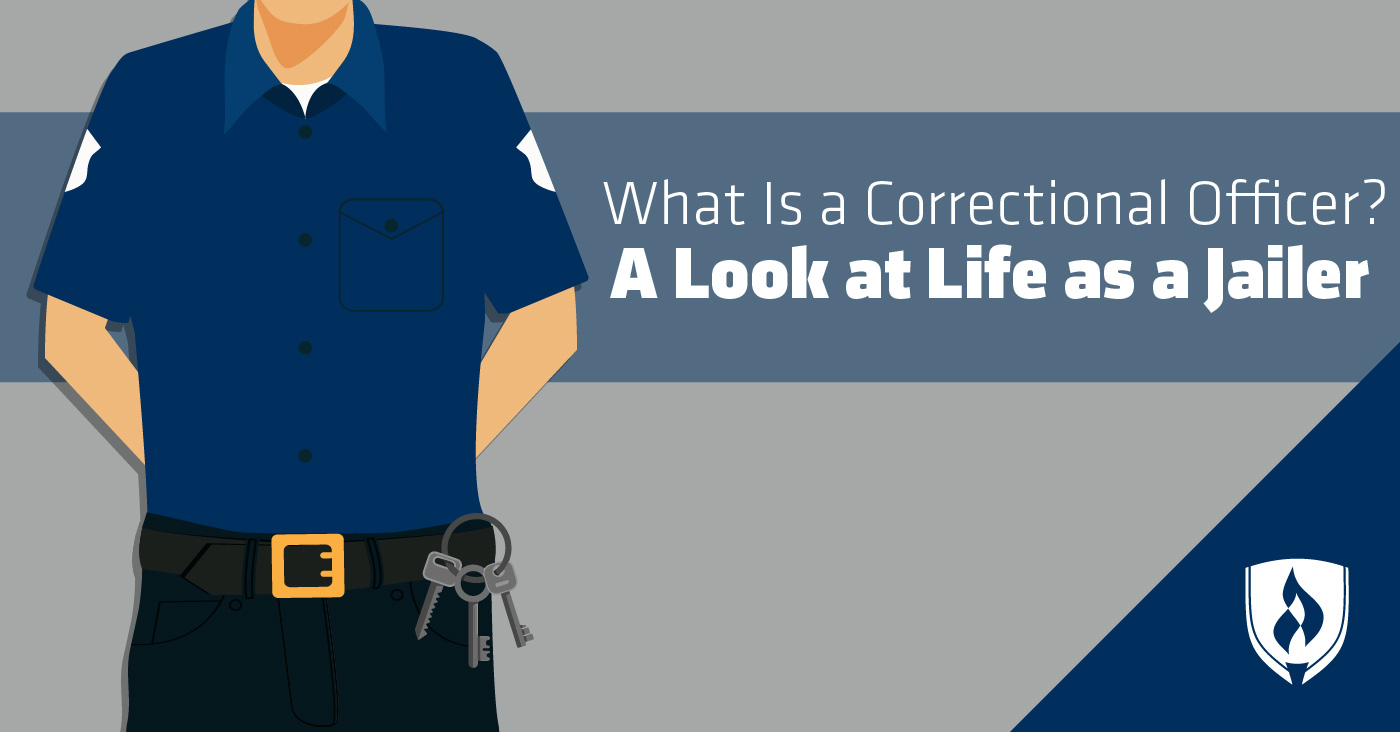
You’ve likely seen plenty of TV portrayals of jailers over the years. Perhaps you have a mental image of an armed guard bullying inmates, or of jailers breaking up violent fights at every turn. However, like with a lot of things, the Hollywood portrayal of working as a correctional officer doesn’t always match up with reality.
If Hollywood gets it wrong, then what is a correctional officer? The men and women in this career are a vital part of our criminal justice system, working to protect inmates and civilians alike. Believe it or not, working as a correctional officer can be an incredibly fulfilling career.
It’s time to dig deeper into this criminal justice career. We found everything you need to know about what it’s really like to be a correctional officer, from their role in the justice system to their daily job duties. You might be surprised what you learn about correctional officer careers—you could even discover that it’s a good career option for you.
What do correctional officers do?
Correctional officers promote order and safety in jails and prison facilities. They follow specific procedures designed to keep the peace and protect inmates, visitors and other prison staff. One of their main duties is to escort prisoners safely in and out of their cells and to destinations outside the prison facility, such as medical centers or courtrooms.
Despite what you see on television, a correctional officer’s job typically focuses on preventing fights, escapes and other disturbances. They can often be found patrolling on rounds, checking cells for evidence of security problems, searching prisoners for contraband items and reviewing surveillance footage. Correctional officers keep meticulous records, filling out logs detailing everything that took place during their shift, including suspicious or notable incidents.
Where do correctional officers work?
Most correctional officers work for the government in state or local prison facilities, although private prisons also employ correctional officers, according to the Bureau of Labor Statistics (BLS).* Those working in jails are more likely to encounter a wide variety of inmates coming and going for short-term stays and less serious infractions, while correctional officers in prisons typically work among inmates who are convicted felons.
All corrections facilities have one thing in common: they require security 24/7, every day of the year. Correctional officers may work overnights, weekends and holidays, and they must be alert and prepared to take action no matter what time of day they’re on duty. Depending on the workplace, overtime opportunities could be available.
What skills does a correctional officer need?
It takes strong character and leadership skills to keep the peace in a place that is ripe for conflict. Correctional officers need to be keen observers who have a strong sense of people’s motivations and reactions.
Communication skills are also important in this profession. Correctional officers need to communicate well to make sure they’re always on the same page with the rest of their team, working together to keep one another and the inmates safe. They also need to have strong speaking skills, so they can clearly relay instructions and other information to inmates without signs of wavering or discomfort.
Are you curious to know if you have the makings of a correctional officer? These are just some of the skills a correctional officer needs, according to the U.S. Department of Labor:1
- Social perception
- Speaking
- Active listening
- Monitoring
- Critical-thinking
- Complex problem-solving
- Persuasion
- Judgment and decision-making
- Negotiation
- Service orientation
How do you become a correctional officer?
Generally, correctional officers need only a high school diploma and specialized training through their city or state to get started on this career path. But don’t write off higher education just yet! There are plenty of advantages to earning a degree in Criminal Justice. For example, the BLS reports that federal agencies typically require some college education, and the Federal Bureau of Prisons requires at least a Bachelor’s degree.
You might want to consider gaining education in Criminal Justice even if you don’t plan to work at the federal level. A solid criminal justice program can prepare you for the work environment and provide important context regarding the country’s legal and justice systems. Students in Rasmussen’s Criminal Justice Associate’s degree program gain valuable knowledge through courses such as Criminology, Practical Psychology for the Criminal Justice Professional and Introduction to Corrections.
A career that’s more than meets the eye
As you can see, the answer to “What is a correctional officer?” goes deeper than you may have expected. The men and women in this career field are essential to the criminal justice system, and their daily work is much more complex than the dramatic portrayals you’ll find on TV.
If you could see yourself protecting others and promoting safety as a correctional officer, learn more about how to get started with an Associate’s degree in Criminal Justice.
Related Articles;
- Breaking Down the Different Types of Prisons in America
- 17 Legal Podcasts That Will Pique the Interest of Aspiring Paralegals
- Is Cyberbullying Illegal? When Comments Turn Criminal
1Bureau of Labor Statistics, U.S. Department of Labor, Occupational Employment Statistics, [information accessed January 11, 2019] www.bls.gov/oes/.
2Bureau of Labor Statistics, U.S. Department of Labor, Occupational Outlook Handbook, [career information accessed November 23, 2018] www.bls.gov/ooh/. Data represents national, averaged earnings for the occupations listed and includes workers at all levels of education and experience. Employment conditions in your area may vary.




